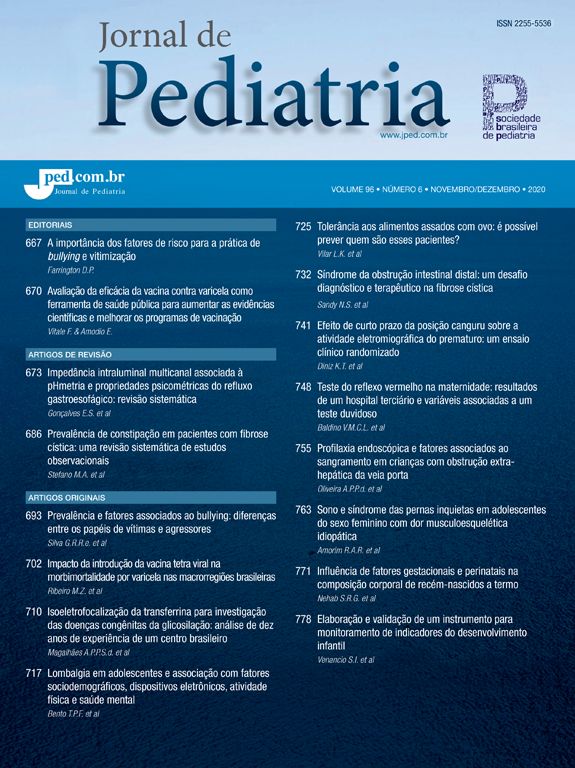to understand maternal conceptions of infantile diarrhea, encouraging reflection on the importance of communication between mothers and health services.
Methodssurvey carried out in selected areas of six towns in the state of Pernambuco, all of which participated in the diarrhea control project coordinated by the State Health Secretariat. The information was obtained through interviews with 770 mothers, producing a representative sample of 1,026 children younger than five years.
Resultsin general, mothers associated the occurrence of diarrhea with some kinds of food (fatty or undercooked). Better educated mothers, regardless of their place of residence, attributed it to improper hygiene and sanitation, whereas illiterate and poorly educated mothers, from the metropolitan region of Recife, blamed it on hot weather, and those living in the countryside believe the occurrence of diarrhea is related to teething. Circa 24.2% (63.4% living in the countryside) do not know how to prevent the disease. The two preventive measures most frequently adopted consist in drinking treated water and cooking food thoroughly. Only 0.5% mentioned breast-feeding. The number of children still alive and their ages influence maternal conceptions. The main sources of information about the prevention of diarrhea are the support network (45.5%), the health sector (35.9%) and the media (33.2%).
Conclusionsthe insufficient participation of the health sector in the information network about diarrhea, misinformation, and sharp disagreement over maternal conceptions and technical knowledge, which are the cornerstone of institutional measures, show that it is necessary to value the communicative dimension of the educational approach in child care.
conhecer as concepções maternas sobre a diarréia infantil, estimulando a reflexão sobre a importância da comunicação entre as mães e os serviços de saúde.
Métodosinquérito realizado em áreas selecionadas, localizadas em seis municípios de Pernambuco, participantes do projeto de implementação das ações de controle da diarréia, coordenado pela Secretaria Estadual de Saúde. As informações foram obtidas através de entrevistas com 770 mães, perfazendo uma amostra representativa de 1.026 crianças menores de cinco anos.
Resultadosas mães, em geral, relacionam a ocorrência da diarréia com os alimentos (gordurosos, mal cozidos). Aquelas com maior escolaridade, independentemente do local de residência, valorizam as condições higiênicas e sanitárias; as analfabetas e com menor escolaridade, na Região Metropolitana do Recife, as condições "quentes" e, no interior, a dentição. Cerca de 24,2% (63,4% residentes no interior) não sabem como evitar a doença. As duas medidas preventivas mais citadas são ingerir água tratada e cozinhar bem os alimentos; apenas 0,5% mencionam a amamentação. O número de filhos vivos e a idade da criança influenciam as concepções maternas. As principais fontes de informação sobre a prevenção da diarréia são a rede de apoio (45,5%), o setor saúde (35,9%) e os meios de comunicação (33,2%).
Conclusõesa pequena participação do setor saúde na rede de informação sobre a diarréia, a desinformação e o profundo desacordo entre muitas das concepções maternas e os conhecimentos técnicos que fundamentam as práticas institucionais evidenciam que, na atenção à criança, é fundamental valorizar a dimensão comunicativa do trabalho educativo.








